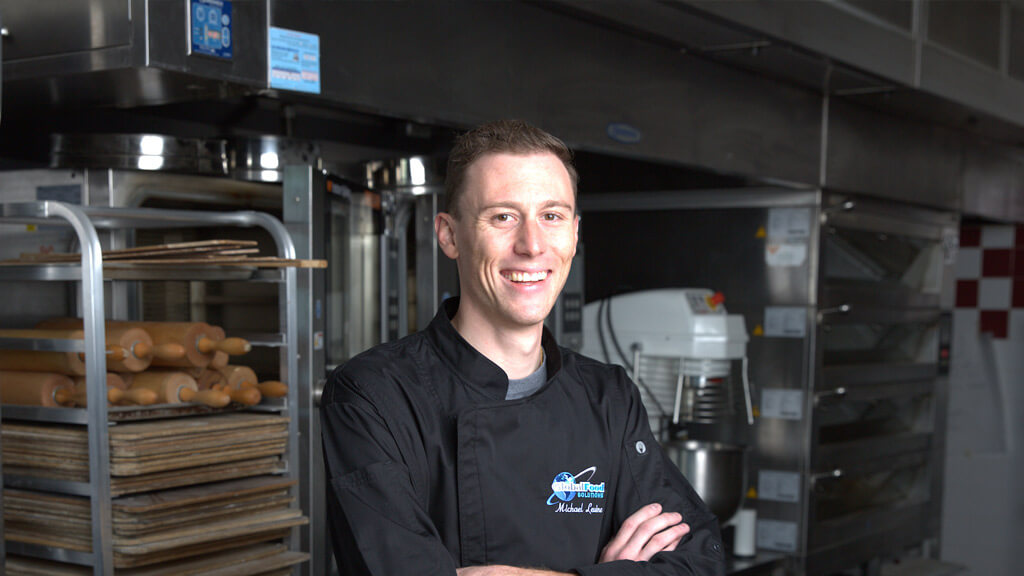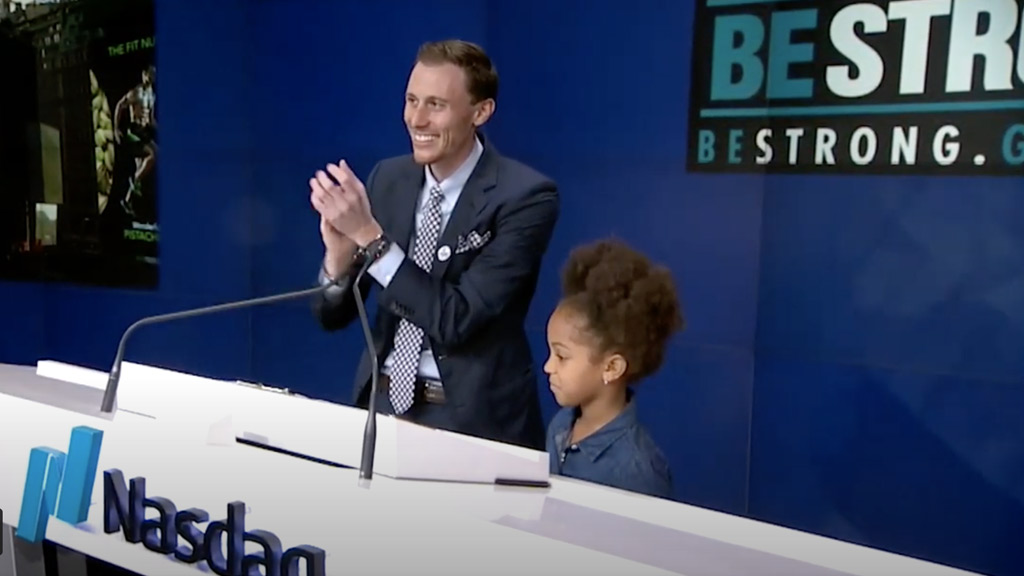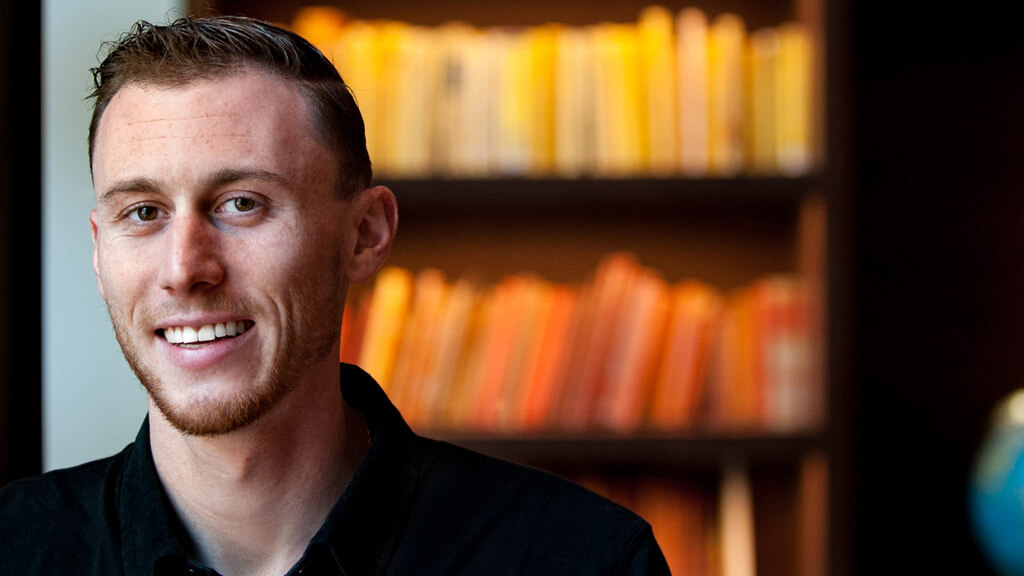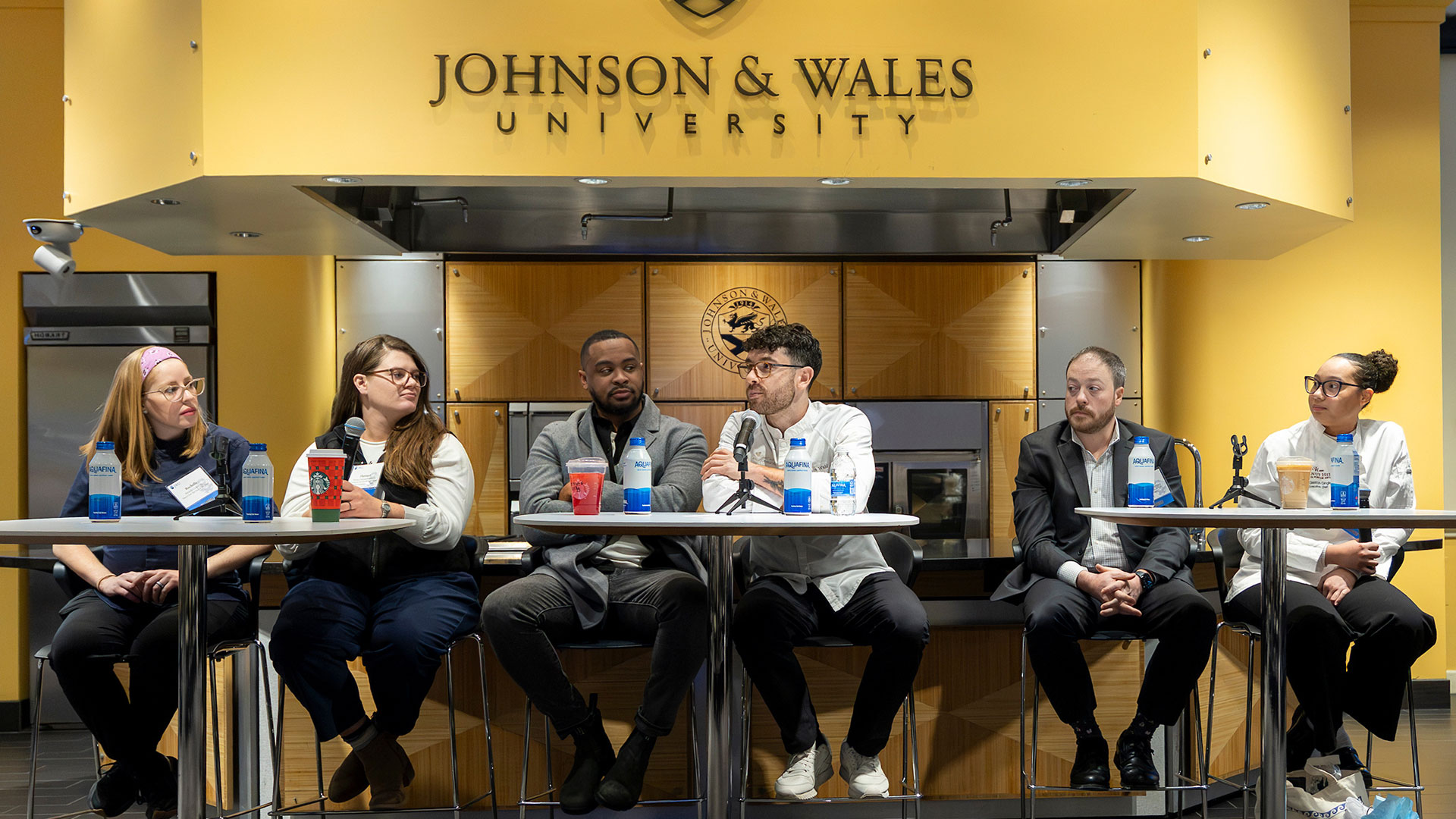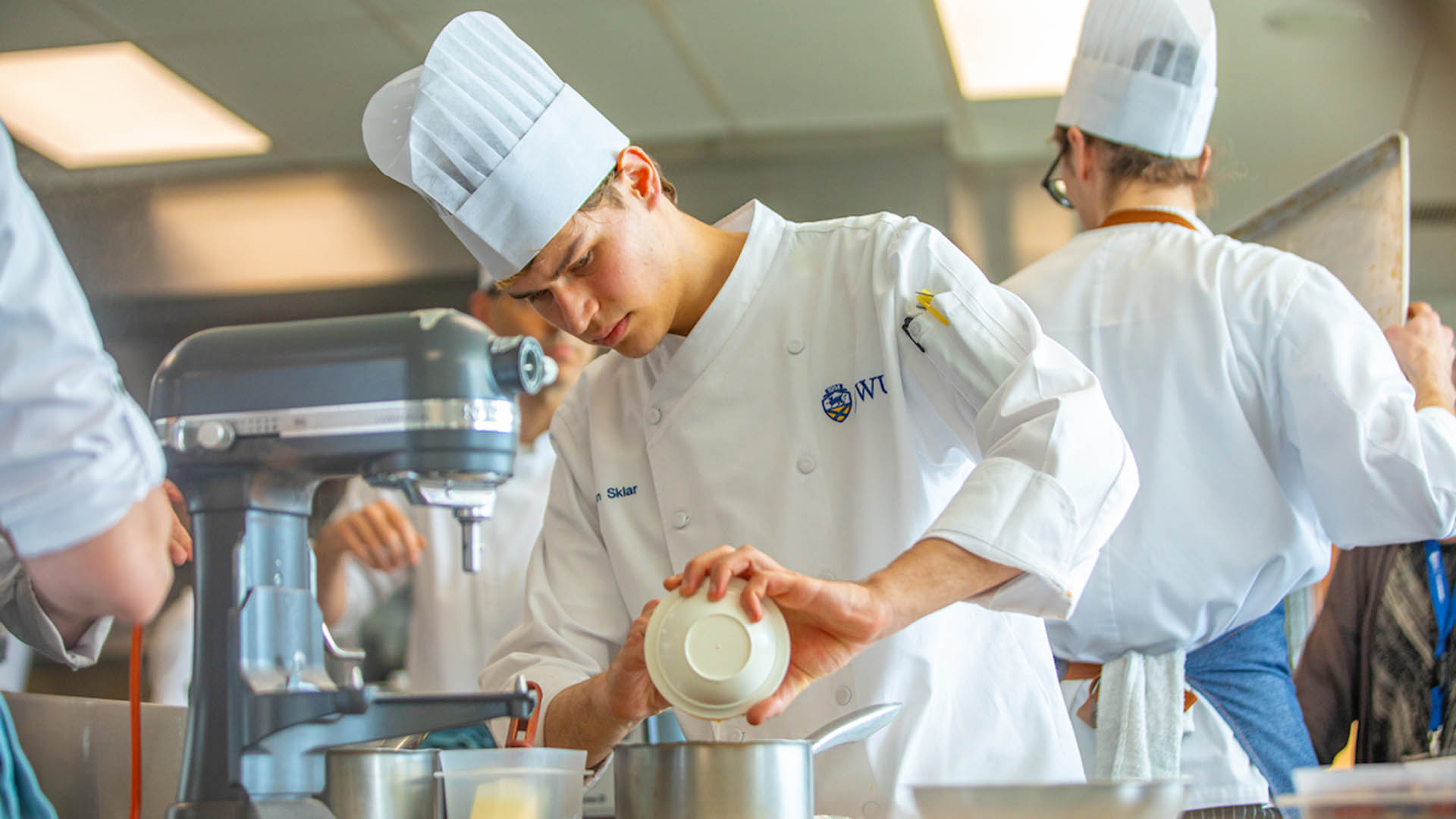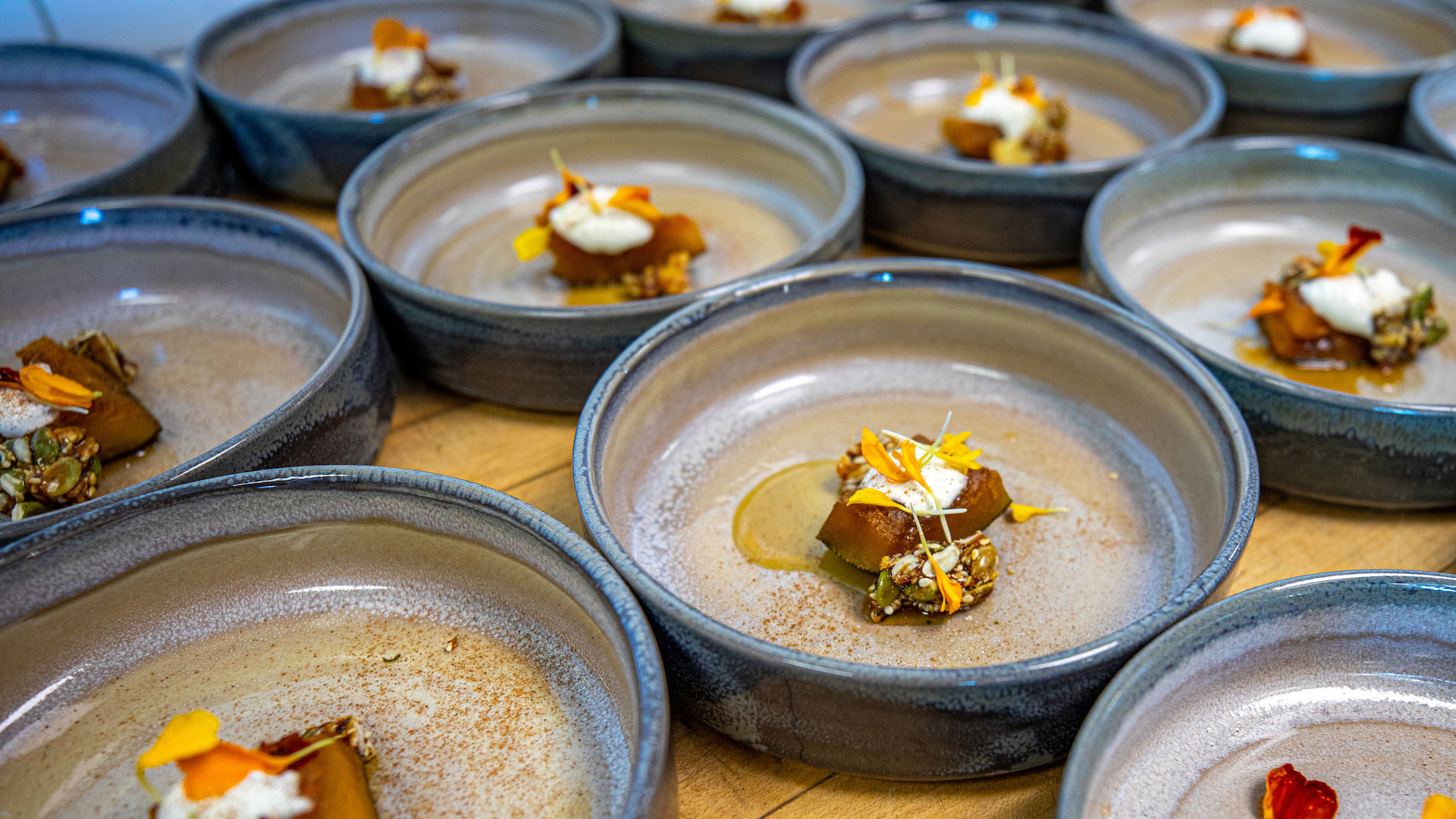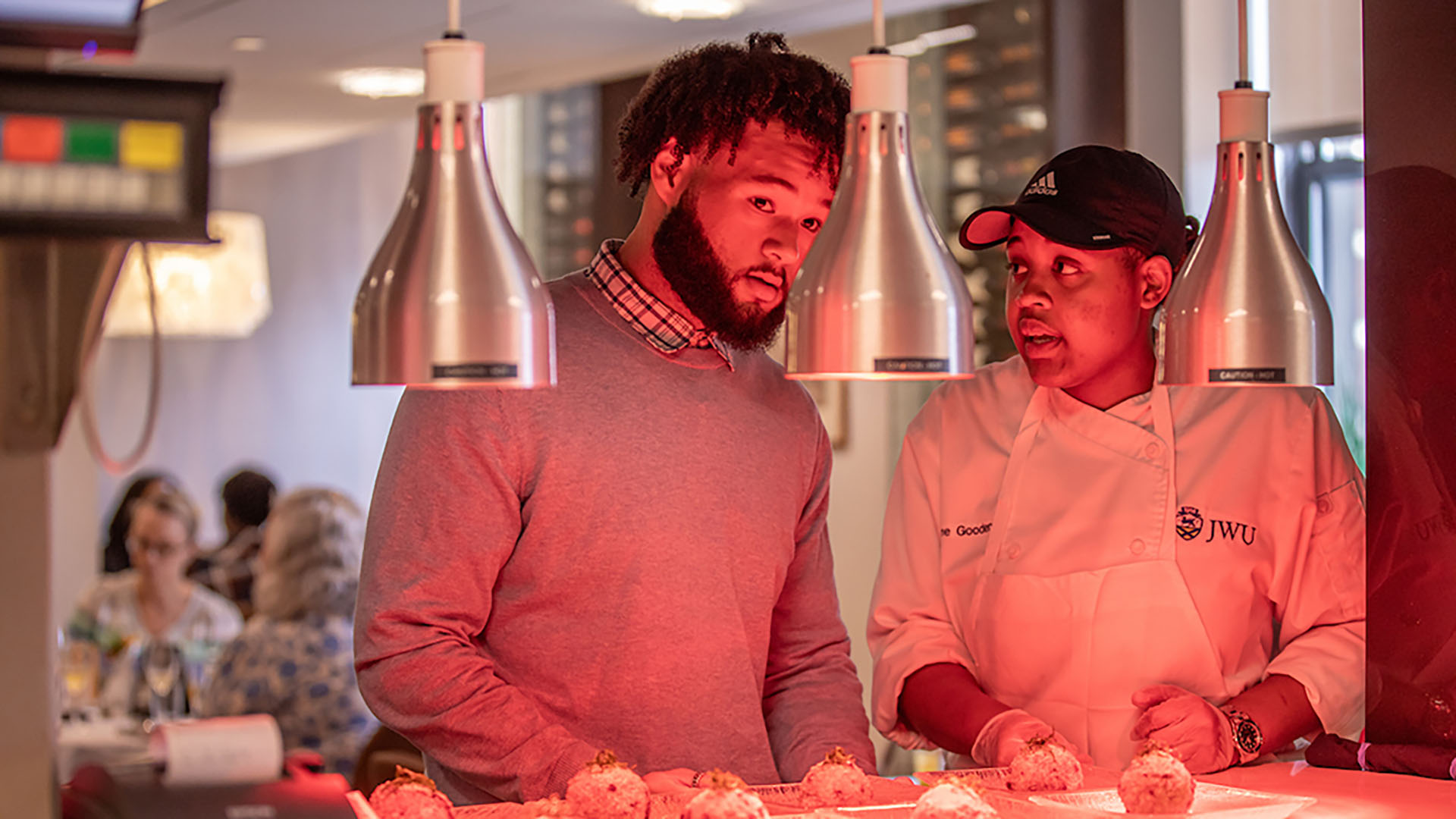Michael Levine '12 Combats Pandemic With Food
In early February, Michael Levine ’12, CEO of Global Food Solutions, was contemplating the new coronavirus wreaking havoc in China. Instead of hedging his bets, he went all in on a bold new strategy. Using his ingenuity and data pulled together by him and his team, the entrepreneur kept his business safe — even thriving — despite the virus’ destructive path. He also managed to provide his customers, including schools, hospitals and food pantries, with wholesome yet long-lasting food to help them ride out the COVID-19 pandemic.
With impending school closings and hospitals preparing for overwhelming numbers of the virus’ victims, Levine made a 180-degree-turn and started ramping up the production, logistics and shipping of food products he normally produces in small numbers — grab-and-go meal kits.
Business Before COVID-19
“For us, it's a very interesting scenario that's played out,” said Levine. Students, many of whom depend on school lunches as their one nutritious meal each weekday, wouldn’t have them if schools closed. And health care workers and agencies that feed people in need, could run out of food. His decision to pivot from producing his usual prepared food for these costumers, to the more sustainable yet still nutritious meal kits, would have a critical impact. “A huge piece of our core business is school food service. We primarily make all sorts of different products, anything from canned goods to frozen goods to shelf-stable goods, that we supply to clients like New York City and L.A., in some 35-40 states around the country.”
“We were quickly able to identify the biggest pockets in the country with the most demand.”
Keeping his eye on the quickly spreading virus, Levine decided his usual production — both the types and amounts of food products — had to be reconsidered in order to get his company and his customers through the approaching pandemic. “We have plenty of items that we're used to doing easily thousands of cases of … like pancakes, for example. We would do 20,000–30,000 cases a month. We're only shipping 500 right now.”
Pre-COVID-19, Global Food Solutions was providing the components of whole meals to schools. Using New York City as an example, Levine said: “I supplied pancakes, waffles, French toast, turkey sausage patties, granola, and they [the schools] use all those products on their breakfast menu … they make the meal and serve it to the kids.”
When producing food for schools you must follow USDA requirements regarding food allergies, no artificial colors or flavors and other stipulations. Levine also has his own guidelines to follow. He founded Global Food Solutions to develop and distribute “affordable, wholesome and sustainable food products that simply taste amazing.”
Transition Time
With previous experience in food supply chain challenges during crises, Levine could see that COVID-19 was a game changer. “Having worked with FEMA and emergency relief programs, between Hurricane Sandy and the hurricanes in Texas and Puerto Rico, we had seen some of these crisis management programs, and just knew that this [COVID-19] wasn't going to go well.” Contemplating the effects of schools closing across the U.S., Levine made the decision to stop producing massive amounts of food like pancakes, sausage and eggs and to start producing mountainous stacks of ready-to-ship, grab-and-go meal kits.
To deal with the situation strategically, Levine and his team put together various data points — current sales, school networks, school closures, COVID-19 test results and other stats. “We were quickly able to identify the biggest pockets in the country with the most demand in early February, and immediately start shipping meals … where the demand was beginning to increase like New York, Seattle and L.A.”
The list of customers for the meal kits grew to include the military, FEMA and other organizations. “So, one half [of the business] just dropped completely off. And what we're doing now, millions of these meal kits — we're shipping them to all sorts of clients around the country.”
“Our goal is to always provide the highest quality products to students regardless of pandemic or not.”
So, what exactly are these meal kits? They vary in categories for breakfast, lunch and larger size meals. Breakfast, as an example, could include a bowl of cereal, a packet of graham crackers, a juice box, and napkins, all wrapped on a tray.
The meal kits follow the same regulations as the food Levine had been producing for schools. “Our goal is to always provide the highest quality products to students regardless of pandemic or not … Just because it's more challenging right now to find the goods, maybe you have to work with your partners closer, maybe you have to do some unique things to keep the steady supply and flow going.”
Levine feels strongly about his company persevering to help people highly affected by the virus. “These meals are truly being done in a time of crisis and they're going to people who genuinely, really need them," he explained. “I have delivered hundreds of thousands of meals to L.A. and well over 1 million meals just to New York City public schools.”
Looking ahead, the changes put in place by Levine due to the fallout of COVID-19 have some likely benefits for the company and its customers. When students return to school and hospitals have much fewer patients with the virus, Levine is confident that most, if not all of the new customers and vendors he has come to work with will continue the relationship long term. “We've already received commitments from some of the largest,” notes Levine. “In what we believe is the new situation, ultimately these schools are going to need more of these things just to have on hand.”
Passion for Helping Students
Levine’s passion for helping young students has also led him to give his time, effort and funds as a partner with Be Strong, a bullying resiliency organization. “I don't really believe in the whole anti-bullying thing … because it's never going to go away. Be Strong teaches kids how to deal with the stress and all the things associated with it.” Global Food Solutions has served as the main food sponsor for some of Be Strong’s major events including one in Houston last fall that drew about 1,100 kids in person and was streamed live to another 1.2 million across the U.S.
Levine also works with We Dine Together, a partner of Be Strong, that is a student-led initiative committed to ensuring no student eats lunch alone by creating small communities of students in school cafeterias. “It's simply about getting kids to eat together,” says Levine.
Advice for Students
Levine’s advice for students aspiring to become entrepreneurs like himself, is “go for it.” The opportunities for starting a company now, he says, are even more abundant than when he took the plunge. “From the time I thought about starting a business when I was in high school, to now, wow, what a change in differential in terms of what's required and how easy it is … I think it's lowered the barrier of entry in terms of … ‘am I too young to start a business?’ Because the younger you do it, the less you have to lose …. and, if worst case it goes bust, who cares? You're 20, do it again. Start something else. Not everything you make will work. And if you fail, you're going to learn something anyway. So, go for it.”
Having graduated with an A.S. in Culinary Arts and a B.S. in Food Service Entrepreneurship from JWU, Levine has earned some high-level accolades for his success. In 2019, Global Food Solutions was named Most Sustainable Food Service Provider in Metro New York by Lux Magazine. In 2017, Levine was named to the 2017 Forbes 30 Under 30 list — Food and Drink category, and Global Food Solutions was named to the Inc. 5000 list of Fastest Growing Private Companies in America. This year, Levine was chosen for JWU’s 2020 Distinguished Alumni Award — Graduate of the Last Decade.
Levine’s parting words were about JWU. “I loved my time at the university. I still love doing programs with the university. I truly, deeply believe it is the best culinary [program] in the world for the sense that it's creative … and I think that creativity is what's going to drive innovation for the future.”
